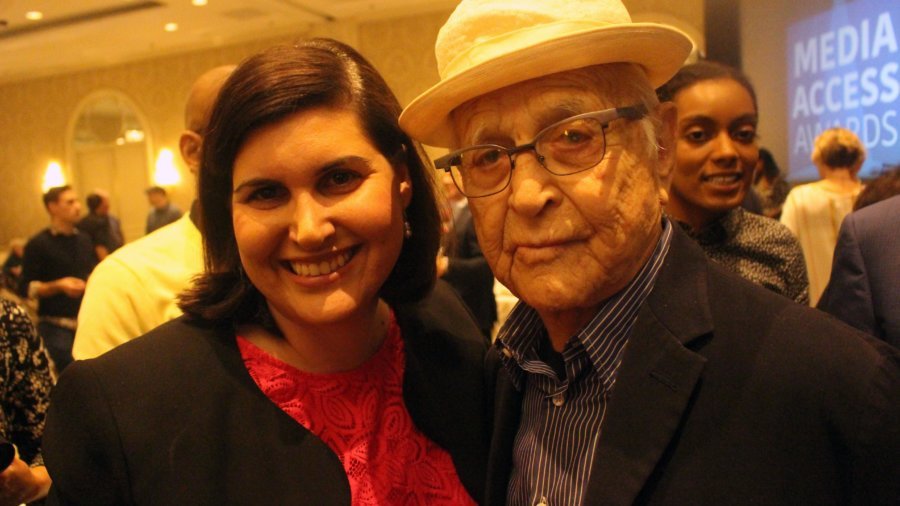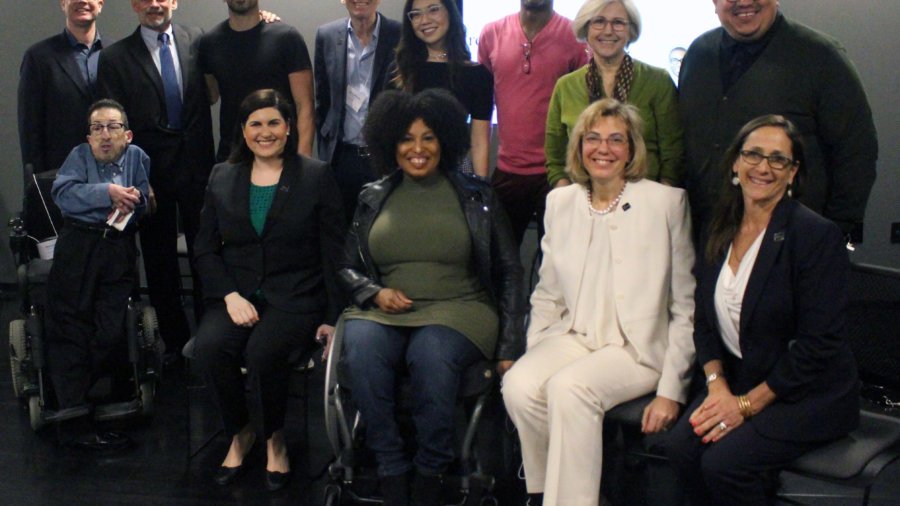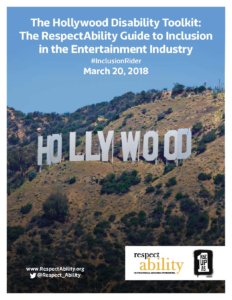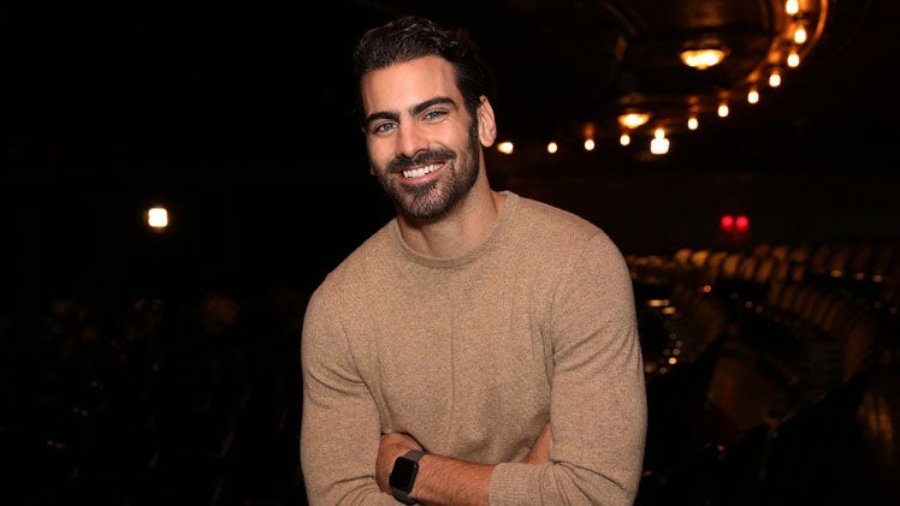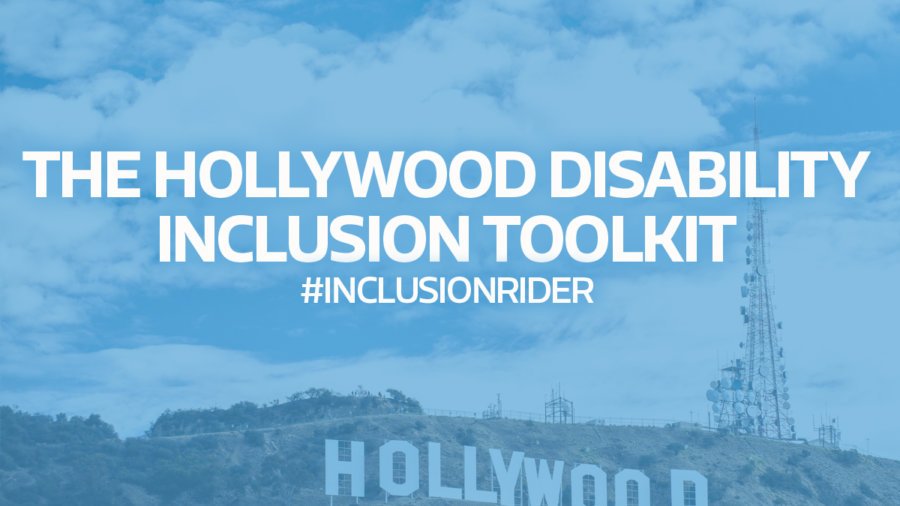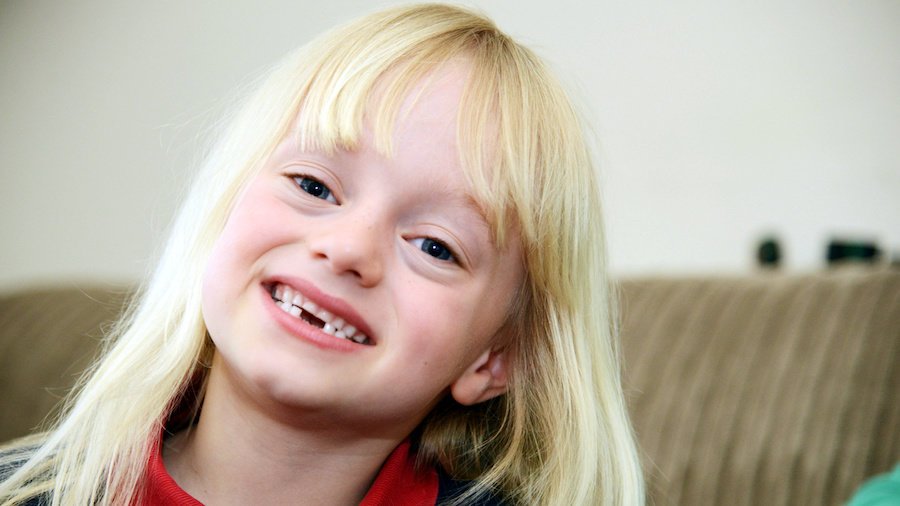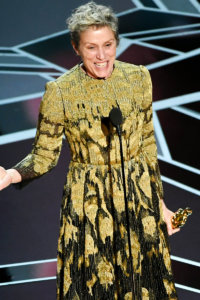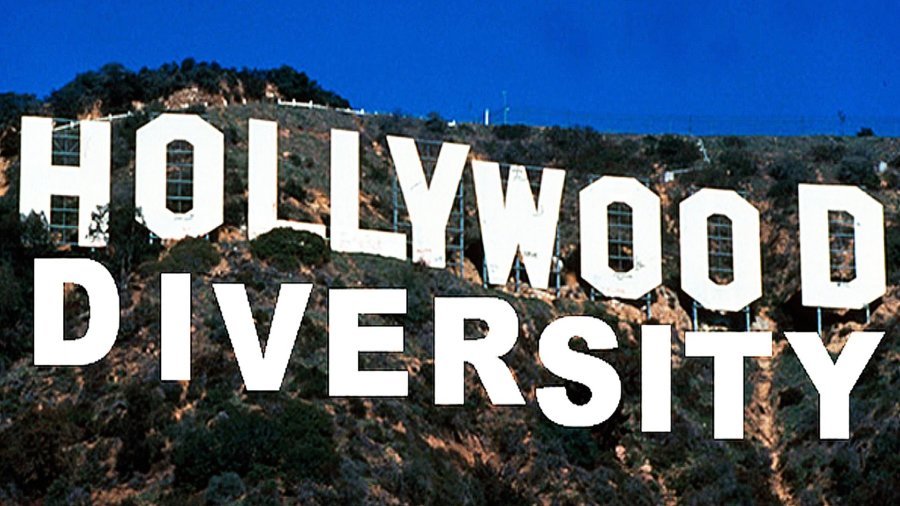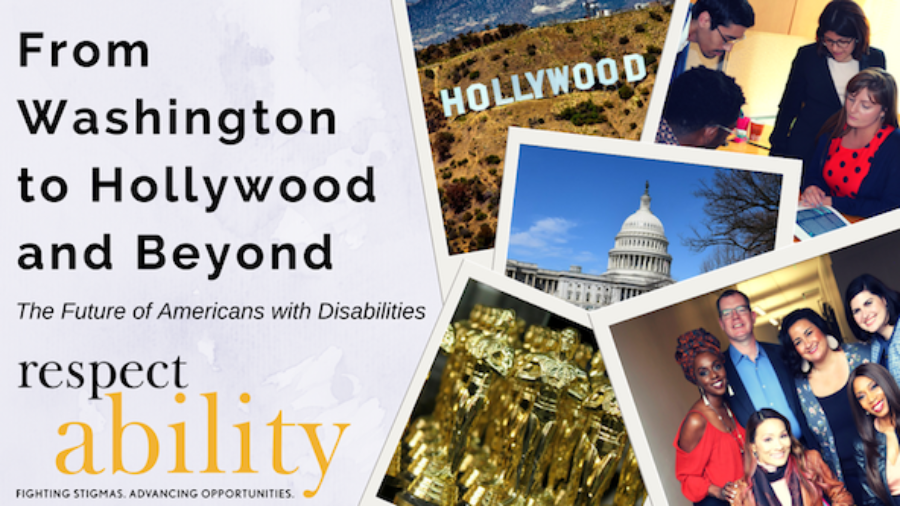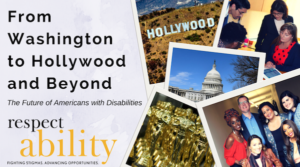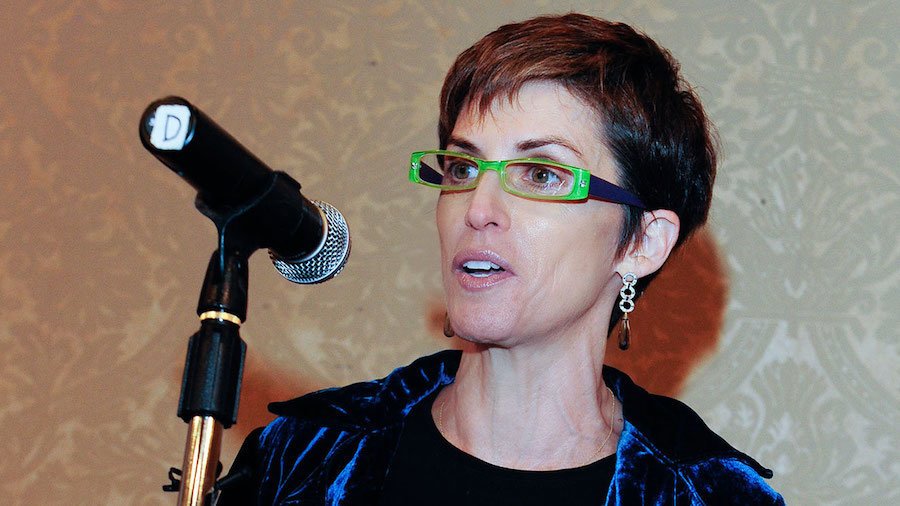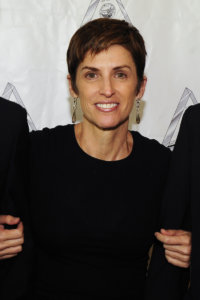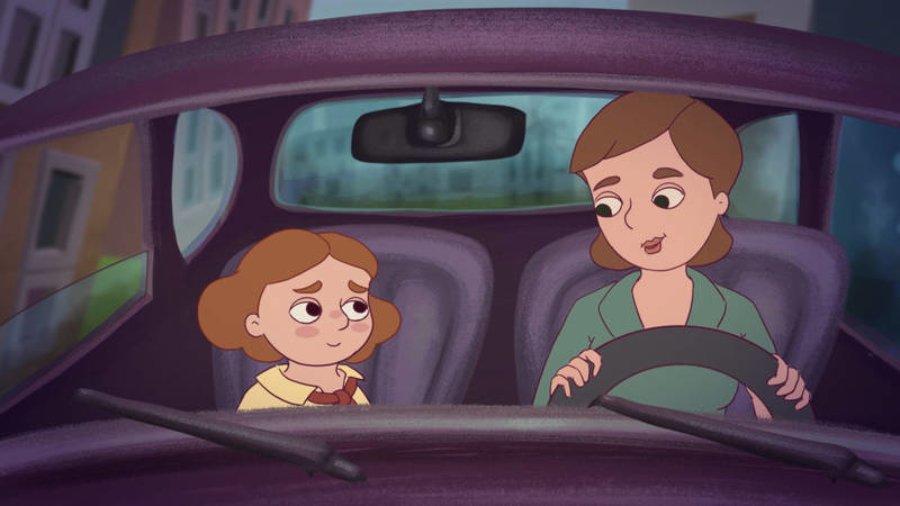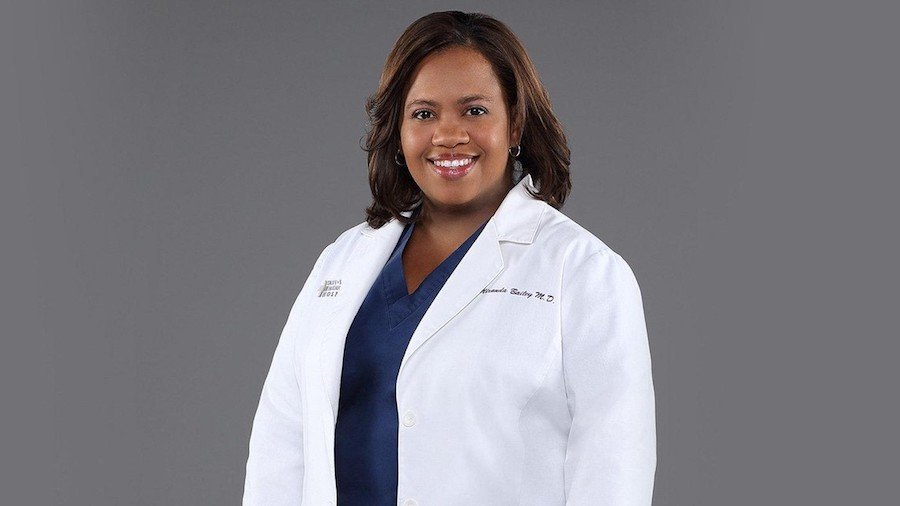RespectAbility and Norman Lear Center Unite to Help Hollywood Include People with Disabilities
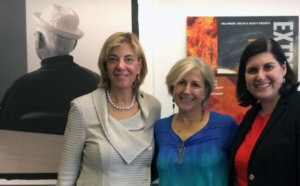
HH&S’ Director Kate Folb in between RespectAbility’s President Jennifer Laszlo Mizrahi and Communications Director Lauren Appelbaum
Los Angeles, Calif., April 18 – RespectAbility, a nonprofit organization fighting stigmas and advancing opportunities for people with disabilities, announces a new partnership with Hollywood, Health & Society (HH&S), a project of the USC Annenberg Norman Lear Center. The partnership will help educate, inform and support the success of the movie/TV industry in its work to ensure that people with disabilities are included on both sides of the camera in the stories that Hollywood tells. HH&S provides entertainment industry professionals with accurate and timely information for storylines on health, safety and national security. Like RespectAbility, HH&S recognizes the profound impact that entertainment media have on individual knowledge and behavior – ultimately impacting society and lives at large.
“We’re delighted to be working with RespectAbility to help inform and inspire the frequency and accuracy of portrayals of people with disabilities in TV and film,” said Kate Folb, the director of HH&S.
HH&S offers several resources, including quick facts, briefings and consultations with experts, case examples, panel discussions about timely health issues, a quarterly newsletter with health updates called Real to Reel and an expanding list of tip sheets written specifically for writers and producers. The broad range of topics includes disability-specific topics autism and mental health. Some of the TV shows they have assisted include The Fosters, The Good Doctor, Grey’s Anatomy, Orange Is the New Black, Speechless, Switched at Birth and many more.
The creation of this partnership would not have been possible without the financial support of The California Endowment. “Visibility and representation matters,” said Jose L. Plaza, who manages the grant for The California Endowment. “We know that accurate and positive portrayals of diverse people with disabilities will not only empower and educate viewers and program creators but will ultimately lead to a more inclusive, responsive and healthier society.”


